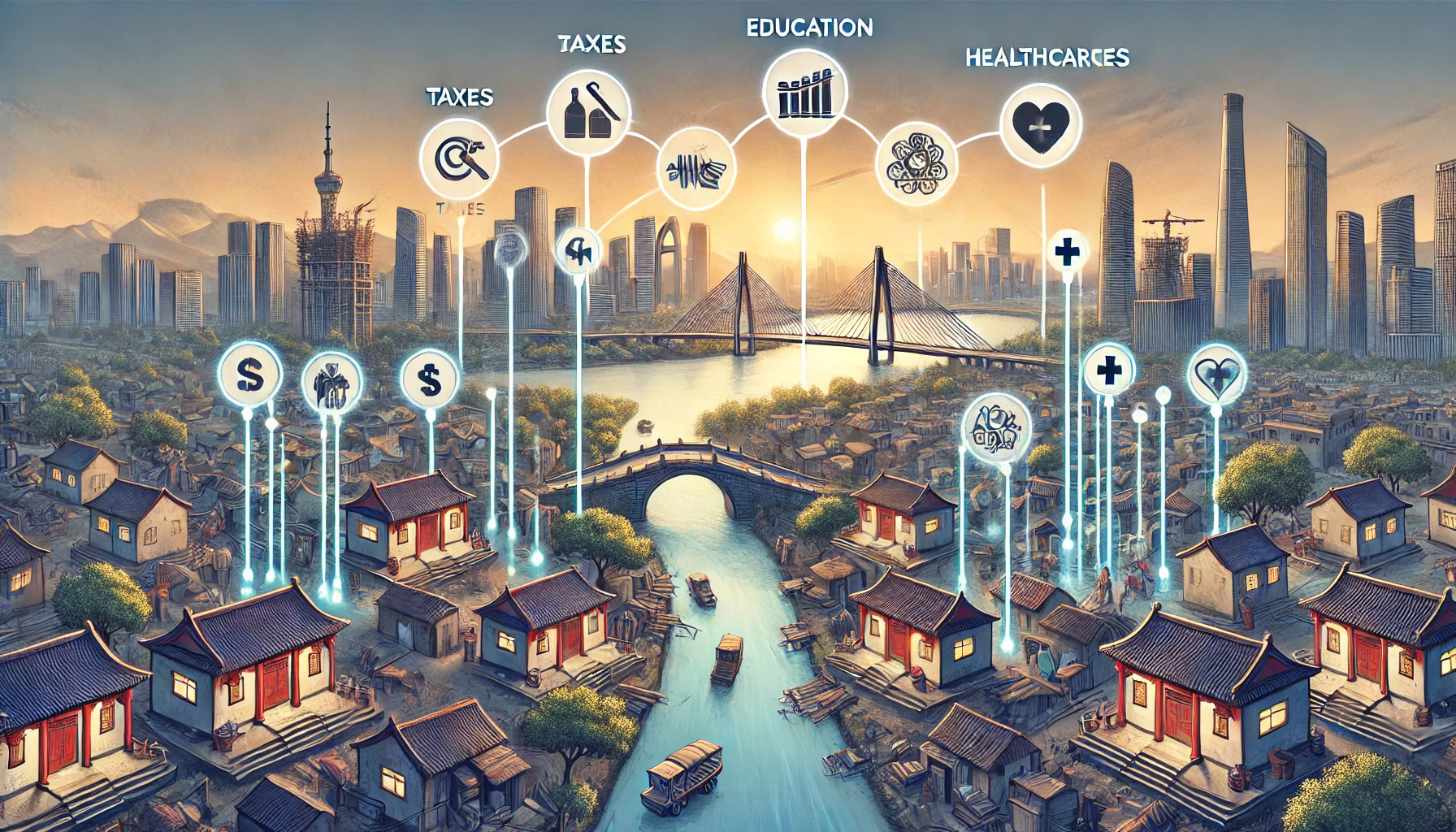The World Bank’s policy research paper delves into the effectiveness of China's fiscal policies in reducing inequality through taxes and government spending. Using data from the 2018 China Family Panel Study, the paper analyzes the extent to which fiscal policies, including personal income tax, contributions to social insurance, VAT, consumption tax, cash transfers, contributory pensions, and public spending on education and health, contribute to reducing income inequality. It accounts for 63% of total government revenue and 43% of total spending. The paper finds that fiscal policy in China achieves a considerable reduction in inequality, measured at about 10.3 Gini points, placing the country around the median when compared to other upper-middle-income countries. Education and health spending, which are both highly progressive, play a pivotal role in this reduction.
Education and Health Drive Inequality Reduction
China’s fiscal system, while effective in redistributing income to reduce inequality, still has significant room for improvement. The report notes that the primary mechanisms for reducing inequality are in-kind benefits such as education and healthcare. These services help poorer households by providing substantial benefits, often outweighing the costs of user fees. However, the user fees, particularly in healthcare, can be a significant burden for lower-income households, consuming a large portion of their disposable income. This heavy reliance on user fees limits access to necessary services for some of the poorest families and implies high costs for raising children. Although cash transfers and pensions provide additional support, their contribution to reducing inequality is relatively small. The fiscal system could make a more significant impact if it were to increase the progressivity of taxation and social spending, particularly by collecting more revenue from those who can afford it and enhancing support for those in need.
The Limited Role of Progressive Taxes
The report highlights the relatively underutilized role of progressive taxes, such as personal income tax (PIT), in China’s fiscal system. While PIT is highly progressive, meaning that higher-income individuals pay a greater proportion of their income in taxes, it accounts for only a small fraction of total government revenue. Most of China’s tax revenue comes from indirect taxes like VAT, which, while contributing to overall revenue, tend to be regressive, disproportionately affecting poorer households. The narrow tax base for PIT, with many low- and middle-income households exempt from paying significant amounts of income tax, means that the wealthiest segments of the population bear the majority of the burden. The study suggests that China could enhance its redistributive capacity by expanding the scope of PIT and reducing its reliance on regressive taxes like VAT.
Social Assistance Programs: Gaps and Opportunities
The report also identifies the need for improvement in China’s social assistance programs. While programs like residents’ pensions and cash transfers play an important role in supporting low-income households, their overall coverage and generosity are limited. For example, the Dibao program, China’s flagship cash transfer program for low-income households, covers only 4% of the population, much lower than the average for upper-middle-income countries. Additionally, the amount of benefits provided by these programs is often inadequate to meet the needs of recipients, particularly in rural areas and poorer provinces. The report calls for an expansion of social assistance programs to cover a larger share of the population, particularly those facing sudden income shocks or increases in essential expenses like healthcare. Improving the adequacy of benefits, especially for rural households and those reliant on the residents’ pension system, would also help reduce inequality.
Structural Challenges for Further Fiscal Progress
The paper points to other structural challenges that China must address to further enhance the redistributive impact of its fiscal system. One of these challenges is the high level of income inequality that persists despite the gains made through fiscal redistribution. China's Gini coefficient, a measure of income inequality, remains high compared to other countries at similar levels of development. To address this, the report advocates for greater investment in human capital, particularly in education and healthcare, to ensure that future generations have access to equal economic opportunities. This is especially important in the context of China's aging population, which will require greater public investment in social protection and healthcare services to ensure that the burden of care does not fall disproportionately on the poorest segments of society.
Expanding Social and Fiscal Support for the Future
The World Bank’s paper underscores the effectiveness of China’s fiscal policies in reducing inequality, particularly through in-kind education and healthcare benefits. However, it also highlights the limitations of the current system, particularly its reliance on regressive taxes and the relatively small role of cash transfers and pensions. By increasing the progressivity of the tax system and expanding social assistance programs, China could achieve even greater reductions in inequality. The report calls for more targeted fiscal policies that not only address current disparities but also prepare the country for future challenges, such as population aging and the transition to a low-carbon economy. These measures would not only enhance social equity but also support China’s long-term development goals.











